From the Derek Trucks Band. Great groove to this tune. Smooth vocal by Mike Mattison and topnotch guitar work from Derek (catch his closing solo which starts at around 4:00). Derek and his wife, Susan Tedeschi, were featured in a prior post. Derek's uncle is Butch Trucks, one of the original drummers for The Allman Brothers Band and Derek often tours as one of the two guitarists in the latest reincarnation of that band.
Saturday, June 30, 2012
Friday, June 29, 2012
More Thoughts On The Decision
No, not The Decision

I mean yesterday's Supreme Court decision on the healthcare law. I've only read excerpts of the opinions and some commentaries so I'll limit my comments to two general observations along with some advice from a Dr that you can find at the end. You'll probably see a further post on The Decision in a few days.
1. While this may be the end of constitutional challenges to the entire statute it is only the start of a wave of litigation over the next few years regarding various aspects of the healthcare law. Because of its scope, complexity and structure as an extensive regulatory scheme with a goal of controlling a large swath of the American economy and the lives of its citizens, Obamacare will inevitably butt up against many aspects of what have, until now, been considered aspects of private life, triggering conflicts with our Constitutionally protected liberties, including rights of association, free speech, religion and, to put it at its most basic, our rights to be left alone. There is simply not enough space in society for Obamacare and constitutional liberties to co-exist in peace. Sort of like when the Lakers had both Kobe and Shaq on their team a few years ago.
I mean yesterday's Supreme Court decision on the healthcare law. I've only read excerpts of the opinions and some commentaries so I'll limit my comments to two general observations along with some advice from a Dr that you can find at the end. You'll probably see a further post on The Decision in a few days.
1. While this may be the end of constitutional challenges to the entire statute it is only the start of a wave of litigation over the next few years regarding various aspects of the healthcare law. Because of its scope, complexity and structure as an extensive regulatory scheme with a goal of controlling a large swath of the American economy and the lives of its citizens, Obamacare will inevitably butt up against many aspects of what have, until now, been considered aspects of private life, triggering conflicts with our Constitutionally protected liberties, including rights of association, free speech, religion and, to put it at its most basic, our rights to be left alone. There is simply not enough space in society for Obamacare and constitutional liberties to co-exist in peace. Sort of like when the Lakers had both Kobe and Shaq on their team a few years ago.
Thursday, June 28, 2012
Surprise . . . It's A Tax!
After all, even the President (whom many have assured me is quite a brilliant guy) didn't realize it!
Or maybe it's just part of his broader evolution on healthcare issues:
Wednesday, June 27, 2012
Tuesday, June 26, 2012
In Memory of Elizabeth Reed
June 26, 1971 was the last concert at the Fillmore East  in NYC (there was a "private" last show the following day of which more below). The bill was Albert King
in NYC (there was a "private" last show the following day of which more below). The bill was Albert King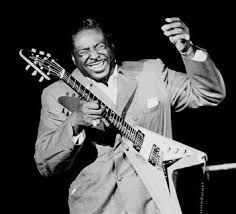 , J Geils Band
, J Geils Band 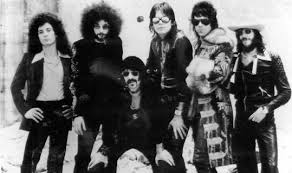 and The Allman Brothers Band
and The Allman Brothers Band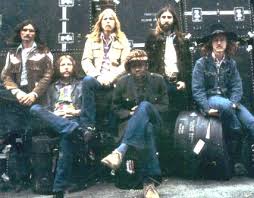 . I'd attended two prior shows at the Fillmore in 1969 with Jefferson Airplane and The Who as the headliners. For that last concert I was more interested in J Geils than in The Allman Brothers whose music I barely knew.
. I'd attended two prior shows at the Fillmore in 1969 with Jefferson Airplane and The Who as the headliners. For that last concert I was more interested in J Geils than in The Allman Brothers whose music I barely knew.
These concerts were a bit different than those of today. The bands played two full shows each evening. We had tickets for the first show. Albert King was good and J Geils was terrific (this was when Geils was a blues/funk band before their pop stardom days in the late 70s/early 80s). The Allman Brothers were the closing act. The first part of their set was good, but not great, focusing on standard blues tunes. Then they launched into Hot 'Lanta, In Memory of Elizabeth Reed and Whipping Post with the soaring guitars of Duane Allman and Dickie Betts flowing over the rhythm section of Berry Oakley (bass) and Jaimoe Johanson and Butch Trucks on drums along with Greg Allman on keyboards and vocals. It was beautiful and uplifting music mixing jazz, rock and blues. I can still close my eyes, see the band onstage and hear the guitars intertwining and flying above everything. I've never heard anything quite like it since.
Apparently the second show was even better (or at least that's what Barbara always tells me - she was at it (this was before we knew each other)). It started after midnight and ended after dawn. It went on so long that when I got home to Connecticut that night I turned on WNEW-FM and to my surprise heard the second show being broadcast live and I listened for awhile.
1971 was the end of the line for the original Allman Brothers lineup. In October, Duane was killed in a motorcycle accident in Macon, Georgia and a year later Berry Oakley died in another motorcycle accident three blocks from where Duane crashed. The band has carried on in many incarnations since then.
The Allman Brothers Live At Fillmore East album which you may have heard was actually recorded at a Fillmore concert earlier in the year and not at the June show. The best version of the live Fillmore Concerts can be found in the 1992 remastering which is less guitar dominated and better shows the rhythmic interplay of the entire band.
The song that stood out the most to me that night was In Memory of Elizabeth Reed, written by Dickie Betts, which remains my favorite rock instrumental. Below are two versions - listening on a PC or mobile device does not do this justice - get the 1992 remastered version and listen to it loud.
If you have 5 minutes and 39 seconds listen to Duane's solo and the last part of the song.
If you have 12+ minutes this is a full live version from the "private" Fillmore East show the day after the closing concert.
This is the complete listing of shows at the Fillmore East from 1968 through its closing.
These concerts were a bit different than those of today. The bands played two full shows each evening. We had tickets for the first show. Albert King was good and J Geils was terrific (this was when Geils was a blues/funk band before their pop stardom days in the late 70s/early 80s). The Allman Brothers were the closing act. The first part of their set was good, but not great, focusing on standard blues tunes. Then they launched into Hot 'Lanta, In Memory of Elizabeth Reed and Whipping Post with the soaring guitars of Duane Allman and Dickie Betts flowing over the rhythm section of Berry Oakley (bass) and Jaimoe Johanson and Butch Trucks on drums along with Greg Allman on keyboards and vocals. It was beautiful and uplifting music mixing jazz, rock and blues. I can still close my eyes, see the band onstage and hear the guitars intertwining and flying above everything. I've never heard anything quite like it since.
Apparently the second show was even better (or at least that's what Barbara always tells me - she was at it (this was before we knew each other)). It started after midnight and ended after dawn. It went on so long that when I got home to Connecticut that night I turned on WNEW-FM and to my surprise heard the second show being broadcast live and I listened for awhile.
1971 was the end of the line for the original Allman Brothers lineup. In October, Duane was killed in a motorcycle accident in Macon, Georgia and a year later Berry Oakley died in another motorcycle accident three blocks from where Duane crashed. The band has carried on in many incarnations since then.
The Allman Brothers Live At Fillmore East album which you may have heard was actually recorded at a Fillmore concert earlier in the year and not at the June show. The best version of the live Fillmore Concerts can be found in the 1992 remastering which is less guitar dominated and better shows the rhythmic interplay of the entire band.
The song that stood out the most to me that night was In Memory of Elizabeth Reed, written by Dickie Betts, which remains my favorite rock instrumental. Below are two versions - listening on a PC or mobile device does not do this justice - get the 1992 remastered version and listen to it loud.
If you have 5 minutes and 39 seconds listen to Duane's solo and the last part of the song.
This is the complete listing of shows at the Fillmore East from 1968 through its closing.
Monday, June 25, 2012
Official Policy Of This Blog
I've been asked a couple of times about whether an item posted on this blog is true . . . usually phrased as "come on, did that really happen?". While this blog is fervently (if also moderately at times) interested in accuracy it is often hard to resist a good story even if of suspect provenance. Therefore, this blog follows the policy set forth in John Ford's The Man Who Shot Liberty Valence (1962):
So, CAVEAT EMPTOR!
So, CAVEAT EMPTOR!
No Question About Posting This!
After all, it's Baseball PLUS Bill Murray.
Murray, co-owner of the Charleston Riverdogs of the Class A Sally League, was recently inducted into the Sally League Hall of Fame. Here's a video about Murray. Best anecdote is at the end.
Here's Murray's full acceptance speech.
Murray, co-owner of the Charleston Riverdogs of the Class A Sally League, was recently inducted into the Sally League Hall of Fame. Here's a video about Murray. Best anecdote is at the end.
Here's Murray's full acceptance speech.
Sunday, June 24, 2012
Does Your Conscience Bother You? Tell The Truth
On this day in 1974, Lynyrd Skynryd released their hit single, Sweet Home Alabama. Here's a unique cover by The Leningrad Cowboys with the assistance of The Red Army Choir.
Saturday, June 23, 2012
Rules Of The Road (In Russia)
The note with this YouTube video says:
"In Russia, everyone should have a camera on their dashboard. It's better than keeping a lead pipe under your seat for protection, but you might still want that lead pipe..."
Friday, June 22, 2012
Woke Up This Morning
Five years ago this month The Sopranos ended. I watch very few shows regularly but saw every episode of this series.
If you watched it you know the theme song, Woke Up This Morning. Or at least you know the part they played over the opening credits. The song was not composed for the show. It was written and recorded earlier in the 90s by the Alabama 3 (despite the name they're a Brit band) for their album Exile On Coldharbour Lane (that's how you know they're a Brit band - they spell "harbor" incorrectly). Here's the full song - it take awhile to get to the part you'll recognize. Try to listen to it on a good sound system - when the bass drum kicks in it feels like your entire house is shaking.
We all had our favorite Sopranos episode. Mine was Pine Barrens or as we referred to it when wanting anyone else who was a Sopranos fan to know what you were talking about - The Russian In The Woods. In this episode a routine collection matter goes horribly wrong and Paulie Walnuts and Christopher Moltisanti end up in the South Jersey woods with, and without, a member of the Russian mob.
And for the truly obsessive Sopranos fan you can lose yourself in The Sopranos: Definitive Explanation Of The End. Have at it!
If you watched it you know the theme song, Woke Up This Morning. Or at least you know the part they played over the opening credits. The song was not composed for the show. It was written and recorded earlier in the 90s by the Alabama 3 (despite the name they're a Brit band) for their album Exile On Coldharbour Lane (that's how you know they're a Brit band - they spell "harbor" incorrectly). Here's the full song - it take awhile to get to the part you'll recognize. Try to listen to it on a good sound system - when the bass drum kicks in it feels like your entire house is shaking.
We all had our favorite Sopranos episode. Mine was Pine Barrens or as we referred to it when wanting anyone else who was a Sopranos fan to know what you were talking about - The Russian In The Woods. In this episode a routine collection matter goes horribly wrong and Paulie Walnuts and Christopher Moltisanti end up in the South Jersey woods with, and without, a member of the Russian mob.
And for the truly obsessive Sopranos fan you can lose yourself in The Sopranos: Definitive Explanation Of The End. Have at it!
Thursday, June 21, 2012
Happy Ratification Day!
On June 21, 1788 New Hampshire became the ninth state to ratify the Constitution  proposed by the Convention which had met in Philadelphia for five months the previous year. With this action, the Constitution became effective for the United States. Even with this milestone, there was still some uncertainty as to the size of the United States since Virginia, New York, North Carolina and Rhode Island had yet to vote on the proposed Constitution. The first three did vote to ratify but Rhode Island did not do so until 1791 and even then only under threat from the United States.
proposed by the Convention which had met in Philadelphia for five months the previous year. With this action, the Constitution became effective for the United States. Even with this milestone, there was still some uncertainty as to the size of the United States since Virginia, New York, North Carolina and Rhode Island had yet to vote on the proposed Constitution. The first three did vote to ratify but Rhode Island did not do so until 1791 and even then only under threat from the United States.
Pauline Maier's book Ratification (2010) tells the story of the battle for ratification in the state conventions. Along with being an entertaining read on what could have been a very dry topic, Professor Maier made me think about aspects of the process for the first time.
The book relies heavily on the Documentary History of the Ratification of the Constitution, a 23 volume work begun in 1976 which is a collection of everything (journals, newspapers, memoirs, minutes, letters) that can still be found related to the state ratification debates.
The procedural issues are fascinating - did the Continental Congress have the right to recommend a plan by a runaway Convention that subverted the existing government and the Articles of Confederation? What action should the Congress take on it? Who should determine whether to ratify in each of the states - the legislature or a representative convention called for that purpose? Did the states have to vote yes or no, or could they vote for ratification with conditions?
Maier emphasizes the importance of the state conventions in expressing the "original intent" of the people. As James Madison wrote in 1796:
This was a political battle with strategies for each state by both the federalists and their opponents. And the tactics used employed all the wiles of good politics, with some skulduggery thrown in.
The term "anti-federalist" was a term applied by the federalists to their opposition and was not used by the opponents themselves. In fact, while the opponents to the constitution varied in the reasons for their opposition there was almost full unanimity among them that the United States needed a stronger central government than that allowed under the Articles of Confederation - their fear was that the government proposed under the new Constitution would be too strong.
What comes through strongly is the degree to which not just officials, but citizen delegates from communities across the states were conversant with the issues raised by the proposed Constitution and knowledgeable about the specific provisions. This comes through most strongly in the Massachusetts debates which is one of three key states, (Virginia and New York are the others) on which Maier spends the most time. In all three the vote in favor of ratification was very close.
Virginia was the most intriguing with Patrick Henry leading the opposition. Everyone had strong views on Henry; Thomas Jefferson called him "avaricious and rotten hearted" as well as "the greatest orator that ever lived". The entire strategy of the Federalists in Virginia was built around how to prevent Henry from hijacking the debate at the Convention - kind of like when an opponent was playing the San Francisco Giants from 2000-2004 and their whole game plan was built around how to handle Barry Bonds (though I don't think Patrick Henry used steroids). Henry did manage to hijack the Convention for awhile with multiple orations, including the "thunderstorm" speech, but Maier takes us through the machinations that allowed the Federalists to finally prevail.
Everyone had strong views on Henry; Thomas Jefferson called him "avaricious and rotten hearted" as well as "the greatest orator that ever lived". The entire strategy of the Federalists in Virginia was built around how to prevent Henry from hijacking the debate at the Convention - kind of like when an opponent was playing the San Francisco Giants from 2000-2004 and their whole game plan was built around how to handle Barry Bonds (though I don't think Patrick Henry used steroids). Henry did manage to hijack the Convention for awhile with multiple orations, including the "thunderstorm" speech, but Maier takes us through the machinations that allowed the Federalists to finally prevail.
Pauline Maier's book Ratification (2010) tells the story of the battle for ratification in the state conventions. Along with being an entertaining read on what could have been a very dry topic, Professor Maier made me think about aspects of the process for the first time.
The book relies heavily on the Documentary History of the Ratification of the Constitution, a 23 volume work begun in 1976 which is a collection of everything (journals, newspapers, memoirs, minutes, letters) that can still be found related to the state ratification debates.
The procedural issues are fascinating - did the Continental Congress have the right to recommend a plan by a runaway Convention that subverted the existing government and the Articles of Confederation? What action should the Congress take on it? Who should determine whether to ratify in each of the states - the legislature or a representative convention called for that purpose? Did the states have to vote yes or no, or could they vote for ratification with conditions?
Maier emphasizes the importance of the state conventions in expressing the "original intent" of the people. As James Madison wrote in 1796:
" . . . whatever veneration might be entertained for the body of men who formed our constitution, the sense of that body could never be regarded as the oracular guide in . . . expounding the constitution. As the instrument came from them, it was nothing more than the draught of a plan, nothing but a dead letter, until life and validity were breathed into it, by the voice of the people, speaking through the several state conventions. if we were to look therefore, for the meaning of the instrument, beyond the face of the instrument, we must look for it not in the general convention, which proposed, but in the state conventions, which accepted and ratified the constitution."
This was a political battle with strategies for each state by both the federalists and their opponents. And the tactics used employed all the wiles of good politics, with some skulduggery thrown in.
The term "anti-federalist" was a term applied by the federalists to their opposition and was not used by the opponents themselves. In fact, while the opponents to the constitution varied in the reasons for their opposition there was almost full unanimity among them that the United States needed a stronger central government than that allowed under the Articles of Confederation - their fear was that the government proposed under the new Constitution would be too strong.
What comes through strongly is the degree to which not just officials, but citizen delegates from communities across the states were conversant with the issues raised by the proposed Constitution and knowledgeable about the specific provisions. This comes through most strongly in the Massachusetts debates which is one of three key states, (Virginia and New York are the others) on which Maier spends the most time. In all three the vote in favor of ratification was very close.
Virginia was the most intriguing with Patrick Henry leading the opposition.
Wednesday, June 20, 2012
Is Perestroika Coming In California?
From Joel Kotkin (a disappointed Jerry Brown voter from 2010) on some positive signs of political change in California as well as his diagnosis of the cause of the system's illness. Kotkin touches on the same themes laid out by Walter Russell Mead of Bard College in his series on the collapse of the Blue Social Model which you can find here.
Kotkin's article can be found at the Newgeography site which has many interesting articles on state finances, growth policies and urban development. Some excerpts from the article:
Kotkin's article can be found at the Newgeography site which has many interesting articles on state finances, growth policies and urban development. Some excerpts from the article:
"When Jerry Brownwas elected governor for a third time in 2010, there was widespread hope that he would repair the state’s crumbling and dysfunctional political edifice. But instead of becoming a Californian Mikhail Gorbachev, he has turned out to be something more resembling Konstantin Chernenko or Yuri Andropov, an aged hegemon desperately trying to save a dying system."
"As with the old party bosses in Russia, Brown’s distinct lack of courage has only worsened California’s lurch toward fiscal and economic disaster. Yet as the budget woes worsen, other Californians, including some Democrats, are beginning to recognize the need for perestroika in the Golden State. This was most evident in the overwhelming vote last week in two key cities, San Diego and San Jose, to reform public employee pensions, a huge reversal after decades of ever more expansive public union power in the state."
"California’s “progressive” approach has been enshrined in what is essentially a one-party state that is almost Soviet in its rigidity and inability to adapt to changing conditions. With conservatives, most businesses and taxpayer advocates marginalized, California politics has become the plaything of three powerful interest groups: public-sector unions, the Bay Area/Silicon Valley elite and the greens. Their agendas, largely unrestrained by serious opposition, have brought this great state to its knees."
Knucklin'
Just last week I wrote that one of the fun things every season in baseball is seeing something you haven't seen before or for a long time. After Monday night RA Dickey fills the bill - I caught the last couple of innings of the game. Dickey became the first major leaguer since 1988 to throw consecutive one-hitters and the first National League pitcher to do it since 1944.
It's not just that he's thrown the one-hitters. It's how he's done it - he's a freakin' knuckleballer!! The only one currently in the major leagues. And he throws it as a strikeout pitch and with control which has never been done by any knuckleball pitcher in history. He also throws the knuckler faster than anyone has (in the low 80s). In his last 48 2/3 innings he's given up 21 hits, one earned run, walked five and struck out 63!
A washed up pitcher in his mid-30s who resurrected his career with the NY Mets over the past two years.
Here's some commentary from last night: http://espn.go.com/video/clip?id=espn:8070547
Who knows how long this can last but let's enjoy it while we can.
It's not just that he's thrown the one-hitters. It's how he's done it - he's a freakin' knuckleballer!! The only one currently in the major leagues. And he throws it as a strikeout pitch and with control which has never been done by any knuckleball pitcher in history. He also throws the knuckler faster than anyone has (in the low 80s). In his last 48 2/3 innings he's given up 21 hits, one earned run, walked five and struck out 63!
A washed up pitcher in his mid-30s who resurrected his career with the NY Mets over the past two years.
Here's some commentary from last night: http://espn.go.com/video/clip?id=espn:8070547
Who knows how long this can last but let's enjoy it while we can.
Tuesday, June 19, 2012
Higher Ground
A few days ago I gave you my nominee for worst cover version ever. Now I bring to you a cover that is beyond such mundane categories as "good", "bad", "great", "awful". It lives in its own dimension outside of our normal existence - it just IS.
Please listen to William Shatner as the "Rocket Man". You will never forget it even if you want to.
Please listen to William Shatner as the "Rocket Man". You will never forget it even if you want to.
Monday, June 18, 2012
Downfall
On June 18, 1945 at a White House meeting with the Joint Chiefs of Staff, the Secretary of War and the Secretaries of the Army and Navy, President Harry Truman approved plans for the invasion of Japan. Along with the President the other key participants were General George C Marshall and Admiral Ernest King.
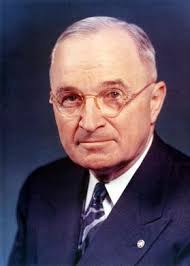

Richard B. Frank's 1999 book, Downfall: The End of the Imperial Japanese Empire, uses information that had only become available in the prior decade to recast our understanding of the events of the last few months of WWII and the endgame with Japan culminating in its surrender on August 14, 1945. These sources include Russian archives which became available after the fall of the Soviet Union, the release, after Emperor Hirohito's death in 1989, of his lengthy account (dictated in early 1946) of those months, the completion of the Japanese War History Series and the release of additional American intelligence information, most importantly, in 1995, of the Magic Diplomatic Summaries. The Magic summaries were produced daily by U.S. intelligence analysts and were a summary of intercepted Japanese diplomatic cables. These summaries, distributed to senior American policy makers including in the White House, provide us with a new window on the information they were receiving about Japanese intentions.
Frank makes us consider this period in a broader context than just the decision about using the atomic bomb, the focus of most discussion in recent decades, and opens our eyes to a vision of a surprising counterfactual history in which the U.S. may not have invaded Japan even if the atomic bombs had not been used and if the war had not ended in mid-August 1945.
Richard B. Frank's 1999 book, Downfall: The End of the Imperial Japanese Empire, uses information that had only become available in the prior decade to recast our understanding of the events of the last few months of WWII and the endgame with Japan culminating in its surrender on August 14, 1945. These sources include Russian archives which became available after the fall of the Soviet Union, the release, after Emperor Hirohito's death in 1989, of his lengthy account (dictated in early 1946) of those months, the completion of the Japanese War History Series and the release of additional American intelligence information, most importantly, in 1995, of the Magic Diplomatic Summaries. The Magic summaries were produced daily by U.S. intelligence analysts and were a summary of intercepted Japanese diplomatic cables. These summaries, distributed to senior American policy makers including in the White House, provide us with a new window on the information they were receiving about Japanese intentions.
Frank makes us consider this period in a broader context than just the decision about using the atomic bomb, the focus of most discussion in recent decades, and opens our eyes to a vision of a surprising counterfactual history in which the U.S. may not have invaded Japan even if the atomic bombs had not been used and if the war had not ended in mid-August 1945.
Sunday, June 17, 2012
Saturday, June 16, 2012
Bootleg
Trenchant commentary on human nature, the marketplace and the law from John Fogerty and Creedence Clearwater Revival circa 1969.
For some related observations on this topic see Bruce Yandle on Baptists and Bootleggers
Take you a glass of water
Make it against the law
See how good the water tastes
When you can't have any at all
For some related observations on this topic see Bruce Yandle on Baptists and Bootleggers
Friday, June 15, 2012
Bernie
This week we saw Bernie, an offbeat, amusing and dark comedy, based on a true story about a sexually ambiguous (well, maybe not that ambiguous) assistant funeral director in East Texas who is currently serving a life term in a Texas prison for the murder of an 81-year old millionaire widow. Sure sounds like a knee-slapper doesn't it! Well, it's not a knee-slapper but its not exactly a tragic epic either.
How could it be when Jack Black stars as Bernie Tiede, the funeral director? Black plays it pretty restrained in the role (at least by Jack Black standards except for his performance of 76 Trombones from The Music Man). The real Bernie Tiede makes a cameo, from prison, in the film.
The widow is played by Shirley MacLaine who makes you understand why Bernie did the evil deed. The biggest surprise for me was the performance of Matthew McConaughey, an actor I don't particularly like, who is just terrific playing the District Attorney - I didn't even recognize him in his first few minutes onscreen.
Don't worry that this discussion of the plot line is giving much away since the pleasure in this movie is how it gets where it's going.
Another unusual element is the use of interviews with residents of Carthage, Texas throughout the film. These are the folks were really knew Bernie Tiede and Majorie Nugent (the widow) and without them the film would not amount to much. Bernie was a beloved part of the Carthage community and that whole murder thing created a bit of an uproar and they have no hesitation giving their views.
You also need to stick around for all the closing credits so you can figure out who is an actor and who is a Carthage local and to see all the other added bonus surprises and musical ditties.
The movie is directed by Richard Linklater who also did Dazed and Confused, Fast Food Nation and School of Rock.
How could it be when Jack Black stars as Bernie Tiede, the funeral director? Black plays it pretty restrained in the role (at least by Jack Black standards except for his performance of 76 Trombones from The Music Man). The real Bernie Tiede makes a cameo, from prison, in the film.
The widow is played by Shirley MacLaine who makes you understand why Bernie did the evil deed. The biggest surprise for me was the performance of Matthew McConaughey, an actor I don't particularly like, who is just terrific playing the District Attorney - I didn't even recognize him in his first few minutes onscreen.
Don't worry that this discussion of the plot line is giving much away since the pleasure in this movie is how it gets where it's going.
Another unusual element is the use of interviews with residents of Carthage, Texas throughout the film. These are the folks were really knew Bernie Tiede and Majorie Nugent (the widow) and without them the film would not amount to much. Bernie was a beloved part of the Carthage community and that whole murder thing created a bit of an uproar and they have no hesitation giving their views.
You also need to stick around for all the closing credits so you can figure out who is an actor and who is a Carthage local and to see all the other added bonus surprises and musical ditties.
The movie is directed by Richard Linklater who also did Dazed and Confused, Fast Food Nation and School of Rock.
Thursday, June 14, 2012
Wednesday, June 13, 2012
The Rookie
One of the best things about baseball is seeing something for the first time or something you haven't seen in a long time. There's a big crop of young players with huge potential now in their first or second year in the majors. Mike Trout of the Angels, who is 20 may be the best of all of them.
Bryce Harper is 19 and a starting player on the first place Washington Nationals (those are four words I did not expect to be writing when the season began) and is off to a great start - it's not just the statistics - it's his style and aggressiveness. And it is very unusual for a teenager to play regularly at a big league level.

Grantland has a good article on Bryce by Rany Jazayerli . Go and read it. Here's a chart from the story showing the top five On Base + Slugging Percentages (OPS) for 19 year olds and where Harper fits. It's pretty good company - two Hall of Famers (Ott/Mantle), one player who probably would have been in the Hall but for a terrible injury when he was 22 (Conigliaro) and one who might have made it if he hadn't blown out his knee (Cedeno).
It's a small sample size for Harper but it sure is fun to think about what he might turn out to be.
On Sunday afternoon we were at Fenway to see the Red Sox play the Nationals. Harper didn't start but entered the game in the 9th inning as a pinch hitter with the score tied at 3. Harper walked. The next batter (Bernadina) hit a liner into the right field corner. I kept my eyes on Harper and watched him score from first. It was like seeing a Roadrunner cartoon with little puffs of dust flying from his heels. The kid really motored around the bases and scored the winning run.
And, as an extra added bonus it turns out he is a gifted societal observer:
For the Sox, other than watching Big Papi go 3 for 4 (homer, double, single) the only other highlights on Sunday were Jarrod Saltalamacchia striking out four times and Adrian Gonzalez hitting three weak grounders and a popup to the right side of the infield. Looks like I may have to reactivate my plan from earlier in the season.
Bryce Harper is 19 and a starting player on the first place Washington Nationals (those are four words I did not expect to be writing when the season began) and is off to a great start - it's not just the statistics - it's his style and aggressiveness. And it is very unusual for a teenager to play regularly at a big league level.
Grantland has a good article on Bryce by Rany Jazayerli . Go and read it. Here's a chart from the story showing the top five On Base + Slugging Percentages (OPS) for 19 year olds and where Harper fits. It's pretty good company - two Hall of Famers (Ott/Mantle), one player who probably would have been in the Hall but for a terrible injury when he was 22 (Conigliaro) and one who might have made it if he hadn't blown out his knee (Cedeno).
| Year | Age | Name | OPS |
|---|---|---|---|
| 1928 | 19 | Mel Ott | .921 |
| 2012 | 19 | Bryce Harper | .908 |
| 1964 | 19 | Tony Conigliaro | .883 |
| 1951 | 19 | Mickey Mantle | .792 |
| 1970 | 19 | Cesar Cedeno | .790 |
It's a small sample size for Harper but it sure is fun to think about what he might turn out to be.
And, as an extra added bonus it turns out he is a gifted societal observer:
For the Sox, other than watching Big Papi go 3 for 4 (homer, double, single) the only other highlights on Sunday were Jarrod Saltalamacchia striking out four times and Adrian Gonzalez hitting three weak grounders and a popup to the right side of the infield. Looks like I may have to reactivate my plan from earlier in the season.
Tuesday, June 12, 2012
Tear Down This Wall
UPDATED with more background material on the speech.
In 1961, when I was ten, the Berlin Wall was built. I remember watching the coverage on TV and seeing this picture of an East German border guard leaping to freedom.
I remember watching the coverage on TV and seeing this picture of an East German border guard leaping to freedom.  I also remember seeing photos of those who died attempting to cross. A wall, not to keep something out, but a wall to keep people in. It was the ultimate vision of people as property of The State. Growing up in the 50s and 60s it was hard to imagine a future that didn't involve the Cold War resolving itself other than by some kind of horrible confrontation between the United States and the Soviet Union where a final, irreversible miscalculation was made.
I also remember seeing photos of those who died attempting to cross. A wall, not to keep something out, but a wall to keep people in. It was the ultimate vision of people as property of The State. Growing up in the 50s and 60s it was hard to imagine a future that didn't involve the Cold War resolving itself other than by some kind of horrible confrontation between the United States and the Soviet Union where a final, irreversible miscalculation was made.
By the time President Reagan gave his great speech as the Brandenburg Gate, 25 years ago today, there was a sense that something had changed and that a non-catastrophic end to the Cold War could happen. (For more, and there's a lot including a book and movie discussion, read on)
there was a sense that something had changed and that a non-catastrophic end to the Cold War could happen. (For more, and there's a lot including a book and movie discussion, read on)
In 1961, when I was ten, the Berlin Wall was built.
By the time President Reagan gave his great speech as the Brandenburg Gate, 25 years ago today,
Monday, June 11, 2012
Sunday, June 10, 2012
Derek Jeter's Diary
Not really, but it is hilarious. From Grantland.
Here's Derek on why stats are overrated (all my SABR readers please take note!):
Here's Derek on why stats are overrated (all my SABR readers please take note!):
"That being said, I believe that clutch exists. The stats guys are always trying to tell you there's no such thing as clutch, that there's no special skill to it, it's all probabilities and math. Look: I also know that math exists. I've taken math classes, I've seen numbers be added and subtracted in front of my very eyes. Those symbols on the back of baseball cards mean something real. But you can't tell me that there's not some magic ability some players have that makes them rise to the occasion when it counts most. I've seen Alex Rodriguez fail in huge situations too many times not to believe what I have is special. You look him in the eye after he strikes out to end a game and then tell me I'm wrong. You can't. Mostly because his eyes start to quiver with tears a tiny little bit in the corners and it's the most heartbreaking thing you've ever seen. It's like Bambi suddenly realizing he's being eaten by a tiger. Alex probably has a painting of that. He's huge into memorializing his own suffering with art. Guys with $300 million tend to spend it on that stuff."
Charlie Freak
For a long time I thought this Steely Dan song was about the character for whom the song is named. It's not - it's about the narrator. One of the few non-sardonic songs by The Dan.
Saturday, June 9, 2012
Something Wicked This Way Comes
. . . was my favorite book by Ray Bradbury, who died this week at age 91. One of the things I'd planned to do upon my retirement was to reread some of the books and authors that I read when younger to see what my perspective might be now. I'd read Bradbury's books when I was much younger - mostly between when I was 10 or 12 and my mid-teens - but had not yet got round to rereading them.
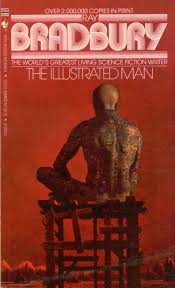

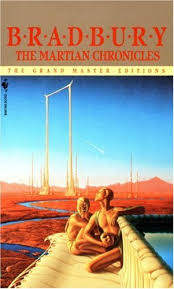
Bradbury's most famous book is Fahrenheit 451, which I admired but did not enjoy as much as the short story collections The Illustrated Man, The Martian Chronicles, Dandelion Wine and the novel, Something Wicked This Way Comes. In this weeks' obituaries he's called a science fiction writer, a label he rejected (except in the case of Fahrenheit 451), calling himself a writer of fantasies.
Bradbury's most famous book is Fahrenheit 451, which I admired but did not enjoy as much as the short story collections The Illustrated Man, The Martian Chronicles, Dandelion Wine and the novel, Something Wicked This Way Comes. In this weeks' obituaries he's called a science fiction writer, a label he rejected (except in the case of Fahrenheit 451), calling himself a writer of fantasies.
Friday, June 8, 2012
Game 7
Celtics - Heat. Saturday night. Hoping Rondo, Pierce, Garnett and Allen can beat the Heat and that LeBron can't replicate his amazing performance of last night.
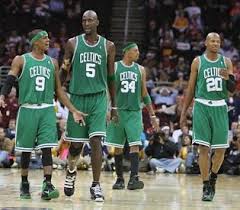

Here's Bill Simmons on last night's game - The Consequences of Caring. The first part of the article details his young daughter's obsession with the Los Angeles Kings and what it means when your favorite team has its season on the line. Then he tackles his own Celtics obsession.
Here's a little appetizer from the article:
For those of you interested in reading more speculation on Lebron's psyche, Joe Posnanski joins thousands of others in trying to figure it out.
And as an extra added bonus here is an extract from The Book of Basketball by Bill Simmons, which I've previously recommended, on the 25th anniversary of Game 4 of the 1987 NBA Finals and the greatest shot taken by Larry Bird that he missed. Don't miss the footnotes.
Here's Bill Simmons on last night's game - The Consequences of Caring. The first part of the article details his young daughter's obsession with the Los Angeles Kings and what it means when your favorite team has its season on the line. Then he tackles his own Celtics obsession.
Here's a little appetizer from the article:
You can't imagine what this was like to witness in person. I know Michael Jordan had similarly astonishing games, and others, too, but not with stakes like that. This wasn't just an elimination game. This was LeBron James's entire career being put on trial … and it only took an hour for him to tell the jury, "Go home. I'm one of the best players ever. Stop picking me apart. Stop talking about the things I can't do. Stop holding me to standards that have never been applied to any other NBA player. Stop blaming me for an admittedly dumb decision I never should have made. Stop saying I'm weak. Stop saying that I don't want to win. Stop. Just … stop."
As a Celtics fan, I was devastated. As a basketball fan, I appreciated the performance for what it was. One of the greatest players ever was playing one of his greatest games ever. He swallowed up every other relevant story line. Needless to say, the Celtics couldn't match him — especially Pierce, who's worn down from four weeks of battling Andre Iguodala, Shane Battier and LeBron on one leg and appears to be running on fumes of his fumes' fumes at this point. The fans were so shell-shocked that many (including me and my father) filed out with three minutes remaining, not because we were lousy fans, not to beat the traffic, but because we didn't want to be there anymore. We wanted to get away from LeBron. He ruined what should have been a magical night. We never really had a chance to cheer, swing the game, rally our guys, anything. He pointed a remote control at us and pressed "MUTE." It was like being in a car accident. LeBron James ran over 18,000 people.
For those of you interested in reading more speculation on Lebron's psyche, Joe Posnanski joins thousands of others in trying to figure it out.
And as an extra added bonus here is an extract from The Book of Basketball by Bill Simmons, which I've previously recommended, on the 25th anniversary of Game 4 of the 1987 NBA Finals and the greatest shot taken by Larry Bird that he missed. Don't miss the footnotes.
Thursday, June 7, 2012
Museum of Endangered Sounds
Miss the sound of a Nintendo Gameboy or of dialing up for America Online or the humm of a cathode ray tube? Welcome to The Museum of Endangered Sounds. In the words of its founder:
"Imagine a world where we never again hear the symphonic startup of a Windows 95 machine. Imagine generations of children unacquainted with the chattering of angels lodged deep within the recesses of an old cathode ray tube TV. And when the entire world has adopted devices with sleek, silent touch interfaces, where will we turn for the sound of fingers striking QWERTY keypads? Tell me that. And tell me: Who will play my GameBoy when I'm gone?"
Wednesday, June 6, 2012
Writers I Like - Alan Furst
"In the late autumn of 1937, in the steady beat of North Sea rain that comes with dawn in that season, the tramp freighter Nicea stood at anchor off the Belgian city of Ostend. In the distance, a berthing tug made slow progress through the harbor swell, the rhythm of its engine distinct over the water, its amber running lights twin blurs in the darkness." - Dark Star by Alan Furst, opening paragraph
Starting in 1976, Alan Furst wrote four novels over a decade with little success. In the late 1980s he decided to focus his writing on European settings during the period leading up to WWII and the early years of the war. Starting with Night Soldiers in 1988, he's written eleven superb novels capturing those years. These novels are thematically a series but they feature different characters and countries and are not arranged chronologically so you can read them in any order. The books take you to Moscow, Warsaw, Spain, Paris, Salonika, to small villages in Bulgaria, tugboats on the Danube and isolated hotels in Switzerland where those on "your" side may not really be on "your" side or, perhaps, you are not on "their" side. The twelfth book in the series, Mission To Paris, will be released next week.
Tuesday, June 5, 2012
Great Duets
An unlikely pairing - James Brown and Luciano Pavarotti doing "It's A Man's World" at a concert in Pavarotti's hometown of Modena, Italy in the spring of 2002. Both were in their late 60s at the time and both have passed away since this performance.
The duet works even though both performers stay within their genres - they don't try to accommodate each other by modifying their styles. Brown looks like he knew he needed to be at the top of his game vocally for this and he's clearly enjoying himself - a joyous performance. Pavarotti looks wax-like and pasted in place but the power of his voice is unabated.
The duet works even though both performers stay within their genres - they don't try to accommodate each other by modifying their styles. Brown looks like he knew he needed to be at the top of his game vocally for this and he's clearly enjoying himself - a joyous performance. Pavarotti looks wax-like and pasted in place but the power of his voice is unabated.
Monday, June 4, 2012
Something I've Wondered About
Thanks for explaining it all for me! It's now clear why the world has become such a better place in the last few years. Hey, I've got a blog!!


Sunday, June 3, 2012
Responding To Idiocy
One of this blog's important missions is to prepare you to deal with life's realities. With that in mind here is something to assist you the next time you encounter mind numbing stupidity.
Glad I could help.
Glad I could help.
Friday, June 1, 2012
I'll Buy You A Beer If You Already Knew The Answer
For those of you still awaiting the results of the groundbreaking research on how Scotch ages in zero gravity there is other breaking alcohol news of import:
 One of the more intriguing conundrums in fluid dynamics is the
puzzling behaviour of bubbles in Guinness, the famous Irish stout.
One of the more intriguing conundrums in fluid dynamics is the
puzzling behaviour of bubbles in Guinness, the famous Irish stout.
As many drinkers will attest, the bubbles in Guinness appear to sink as the drink settles and the head forms. How can this be, given that bubbles are less dense than the surrounding fluid and so should rise?"
FOR THE ANSWER READ THE FULL STORY at the Physics arXiv Blog from the MIT Technology Review.
"Irish Mathematicians Solve The Guinness Sinking Bubble Problem
Bubbles sink in Guinness because of the peculiar
geometry of pint glasses, say a dedicated group of researchers at the
University of Limerick
As many drinkers will attest, the bubbles in Guinness appear to sink as the drink settles and the head forms. How can this be, given that bubbles are less dense than the surrounding fluid and so should rise?"
FOR THE ANSWER READ THE FULL STORY at the Physics arXiv Blog from the MIT Technology Review.